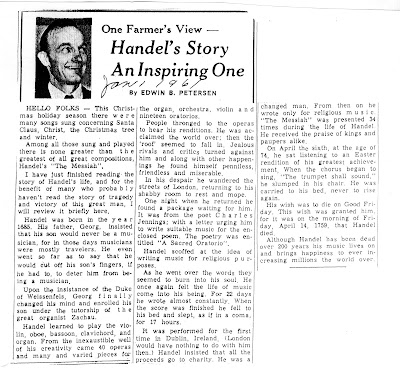--o--
OF COURSE, IF we are going to have self - government we must have the freedom of enterprise. Free enterprise generates the competition and also some of the co-operation that is vital for economic progress.
It seems from here that if enterprise is to compete fairly it must do so with as little interference from government as possible.
We know that there are times when government must step in and furnish capital when business will not or cannot do so, in order for certain segments of the economy to prosper. This is why we have the REA today. There are times when government must furnish wheel chairs, crutches, or other helps to get needed industries going.
The danger therein lies in continued governmental paternalism and interference in such business when it once gets on its own feet. It would seem that if business is to compete fairly and have profits then government must also withdraw from the field when it has accomplished its avowed purpose.
This has happened in such fields as finance, where I understand that Production Credit Associations now borrow their money on the open competitive market. This same thing must come to the Rural Electric Cooperatives if they are to continue to be healthy and useful tools in the economy. Government must cease to be a crutch to them whenever they are able to fend for themselves. This point many of the utilities have reached. They only hurt themselves by wanting to rely on
cheap government financing, subsidied by the taxpayer. There must be incentives to get them off loans as soon as possible.
From free business comes the competition that generates leadership. This leadership feeds back into government, both on the local level and federal. Without this feeding we would be in dire straits for the needed government direction, much as Russia and other totalitarian nations are lacking in this area.
Businesses, to be prosperous, must also be free to fail. We see how programs in agriculture have deadened prices. So would business be hurt if profits are guaranteed. With guaranteed profits there comes the inevitable slowing up of ingenuity, care and watchfulness. As government moves in to interfere more with business, whether it be in agriculture or any other field, so goes self government. The railroads would today be in much better position financially and better able to compete with other modes of transportation were they less restricted.
If we are to grow in self government and with it the increasing standards of living we must be vigilant in seeing that there are no unnecessary restrictions anywhere.




